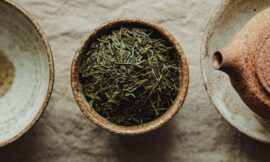Top 10 health benefits of tea are:
- Improved Heart Health
- Reduced Risk of Certain Cancers
- Enhanced Weight loss
- Improved Digestion
- Strengthened Immune System
- Improved Oral Health
- Increased Mental Alertness
- Reduced Stress and Anxiety
- Antioxidant Protection
- Improved Skin Health
All the above mentioned Health Benefits area mainly due to the Antioxidant properties of tea. It must be noted that different brews will have different levels of effect and each body type will accept these effects at individual levels. Also excessive consumption of tea could result in some harmful effects as well, so moderation is the key.
Let us see the benefits of tea in detail below:
1. Improved Heart Health with Tea
Tea, especially green and black tea, contains antioxidants that may help reduce the risk of heart disease and may have benefits like improving blood vessel function and lowering cholesterol levels.
-
- Antioxidant properties:
Tea contains antioxidants called flavonoids, which have been shown to have a protective effect on the heart. Flavonoids help to reduce inflammation and oxidative stress, which can contribute to the development of heart disease. - Lowering blood pressure:
Some studies have suggested that drinking tea, particularly green tea, may help to lower blood pressure. High blood pressure is a major risk factor for heart disease, so reducing blood pressure can help to improve heart health. - Lowering cholesterol:
Tea may also help to lower cholesterol levels, which can contribute to the development of heart disease. Some studies have suggested that drinking tea, particularly black tea, may help to lower LDL (bad) cholesterol levels. - Improving blood vessel function:
Tea has been shown to improve the function of the endothelial cells that line the blood vessels. This can help to improve blood flow and reduce the risk of heart disease. - Reducing the risk of blood clots:
Some studies have suggested that tea, particularly green tea, may help to reduce the risk of blood clots. Blood clots can contribute to the development of heart disease by blocking blood flow to the heart.
- Antioxidant properties:
Overall, while more research is needed to fully understand the effects of tea on heart health, there is evidence to suggest that drinking tea may have several potential benefits for the heart.
2. Tea Reduces Risk of Certain Cancers
Tea, particularly green tea, contains antioxidants called catechins and polyphenols that have been shown to have anti-cancer properties. These antioxidants can help protect cells from damage caused by free radicals, which are unstable molecules that can cause oxidative stress and DNA damage. When DNA damage occurs, it can lead to mutations that increase the risk of cancer.
Studies have shown that the catechins and polyphenols in tea can help inhibit the growth and spread of cancer cells, as well as induce apoptosis (programmed cell death) in cancer cells. Green tea, in particular, has been shown to have protective effects against breast, ovarian, and prostate cancer.
In addition to its antioxidant content, tea also contains other compounds that may help reduce the risk of cancer. For example, tea contains compounds called theaflavins and thearubigins, which are formed during the fermentation process of black tea. These compounds have been shown to have anti-cancer properties and may help reduce the risk of certain types of cancer, such as colorectal cancer.
Overall, the anti-cancer properties of tea are likely due to the combination of its various bioactive compounds, which work together to protect cells from damage and inhibit the growth and spread of cancer cells. However, more research is needed to fully understand the mechanisms by which tea may reduce the risk of certain cancers.
3. Tea Enhances Weight Loss
Green tea has been shown to boost metabolism and increase fat oxidation, which can aid in weight loss when combined with a healthy diet and exercise. Tea, particularly green tea, has been shown to enhance weight loss in several ways:
-
- Boosts metabolism:
Green tea contains caffeine and catechins, which can help increase metabolism and promote fat oxidation. This means that the body burns more calories and fat, even at rest. - Reduces appetite:
Green tea has been shown to reduce appetite and increase feelings of fullness, which can help reduce calorie intake and promote weight loss. - Inhibits fat absorption:
Green tea contains compounds that can inhibit the absorption of fat in the digestive tract, which can lead to reduced calorie intake and weight loss. - Increases energy expenditure:
Green tea has been shown to increase energy expenditure, or the number of calories burned during physical activity, which can help promote weight loss. - Reduces inflammation:
Chronic inflammation has been linked to obesity and other health issues. Green tea contains antioxidants that can help reduce inflammation and promote overall health.
- Boosts metabolism:
It’s important to note that while tea can be a helpful addition to a weight loss plan, it is not a magic solution on its own. To achieve sustainable weight loss, it’s important to combine tea consumption with a healthy diet and regular exercise.
4. Tea Improves Digestion
Tea, especially herbal teas like ginger and peppermint, can help soothe digestive issues and improve overall gut health.Tea can help improve digestion in several ways:
-
- Relieves nausea:
Ginger tea has been shown to be effective in reducing nausea and vomiting, particularly in people undergoing chemotherapy or surgery. - Reduces bloating:
Peppermint tea can help reduce bloating and gas by relaxing the muscles in the digestive tract and promoting the flow of bile. - Soothes stomach discomfort:
Chamomile tea has anti-inflammatory properties that can help soothe stomach discomfort and reduce inflammation in the digestive tract. - Promotes bowel regularity:
Herbal teas like senna and dandelion can help promote bowel regularity and relieve constipation. - Increases hydration:
Drinking tea can help increase hydration, which is important for maintaining healthy digestion and preventing constipation.
- Relieves nausea:
Overall, tea can help improve digestion by promoting relaxation of the digestive muscles, reducing inflammation, and promoting bowel regularity. However, it’s important to note that some teas, particularly those containing caffeine, can have a diuretic effect and may lead to dehydration if consumed in excess. It’s important to drink tea in moderation and stay hydrated by drinking plenty of water throughout the day.
5. Tea Strengthens Immune System
Tea contains compounds that may help support the immune system, making it more effective at fighting off infections and illnesses. Tea can help strengthen the immune system in several ways:
-
- Contains antioxidants:
Tea, particularly green tea, contains antioxidants that can help protect the body from damage caused by free radicals. Free radicals can damage cells and weaken the immune system, so consuming antioxidants can help support immune function. - Contains catechins:
Green tea contains catechins, which have been shown to have anti-inflammatory and immune-boosting properties. Catechins can help stimulate the production of immune cells and improve their function. - Contains L-theanine:
L-theanine is an amino acid found in tea that has been shown to have immune-boosting properties. L-theanine can help stimulate the production of immune cells and improve their function. - Contains vitamins and minerals:
Tea, particularly herbal teas, can contain vitamins and minerals that are important for immune function, such as vitamin C and zinc. - Hydration:
Drinking tea can help keep the body hydrated, which is important for maintaining a healthy immune system.
- Contains antioxidants:
Overall, tea can help strengthen the immune system by providing antioxidants, catechins, L-theanine, vitamins, and minerals that support immune function. However, it’s important to note that tea alone cannot prevent or cure illnesses, and maintaining a healthy immune system also requires a balanced diet, regular exercise, and good sleep hygiene.
6. Tea Improves Oral Health
Tea contains fluoride and tannins, which can help prevent tooth decay and gum disease by inhibiting the growth of harmful bacteria in the mouth. Tea can help improve oral health in several ways:
-
- Contains fluoride:
Tea, particularly black tea, contains fluoride, which can help strengthen tooth enamel and prevent tooth decay. - Inhibits bacterial growth:
Tea contains compounds that can inhibit the growth of harmful bacteria in the mouth, which can help prevent gum disease and bad breath. - Reduces inflammation:
The anti-inflammatory properties of tea, particularly green tea, can help reduce inflammation in the gums and promote overall oral health. - Promotes hydration:
Drinking tea can help keep the mouth hydrated, which is important for maintaining healthy saliva production. Saliva helps wash away food particles and bacteria in the mouth, reducing the risk of tooth decay and gum disease. - Reduces staining:
Tea, particularly white tea, can help reduce staining on teeth caused by coffee, tea, and other foods and beverages.
- Contains fluoride:
Overall, tea can help improve oral health by providing fluoride, inhibiting bacterial growth, reducing inflammation, promoting hydration, and reducing staining. However, it’s important to note that tea alone cannot replace good oral hygiene practices, such as brushing and flossing regularly, and visiting the dentist for regular check-ups and cleanings.
7. Increased Mental Alertness with Tea
Tea increases mental alertness primarily due to its caffeine content. Caffeine is a natural stimulant that works by blocking the action of a neurotransmitter called adenosine, which is responsible for promoting sleep and relaxation. When adenosine is blocked, the levels of other neurotransmitters, such as dopamine and norepinephrine, increase. This leads to enhanced neural activity, resulting in increased alertness, focus, and overall cognitive function.
In addition to caffeine, tea also contains an amino acid called L-theanine, which has been shown to promote relaxation without causing drowsiness. L-theanine can help improve attention and focus by increasing the production of alpha brain waves, which are associated with a relaxed yet alert state of mind. The combination of caffeine and L-theanine in tea provides a balanced and sustained boost in mental alertness, without the jittery side effects often associated with other sources of caffeine, such as coffee.
8. Tea Reduces Stress and Anxiety
Tea, particularly certain herbal teas, can help reduce stress and anxiety through a combination of its bioactive compounds and the calming ritual of drinking tea. Here’s how tea can help:
-
- L-theanine:
Found in green tea and black tea, L-theanine is an amino acid that promotes relaxation without causing drowsiness. L-theanine increases the production of alpha brain waves, which are associated with a relaxed yet alert state of mind. This can help reduce stress and anxiety by promoting a sense of calm and mental clarity. - Herbal teas:
Some herbal teas, such as chamomile and valerian root, contain compounds that have calming effects on the nervous system. Chamomile tea contains apigenin, a flavonoid that binds to specific receptors in the brain, promoting relaxation and reducing anxiety. Valerian root tea has been used traditionally as a natural remedy for insomnia and anxiety, as it contains compounds that can help calm the nervous system. - Antioxidants:
Tea, especially green tea, is rich in antioxidants that can help reduce oxidative stress in the body. Oxidative stress has been linked to increased stress and anxiety, so consuming antioxidants may help alleviate these symptoms. - Ritual and mindfulness:
The act of preparing and drinking tea can be a calming ritual that encourages mindfulness and relaxation. Taking a break to enjoy a cup of tea can provide a moment of respite from daily stressors, allowing you to focus on the present moment and clear your mind.
- L-theanine:
While tea can help reduce stress and anxiety, it’s important to remember that it’s not a cure-all. Incorporating other stress-reduction techniques, such as regular exercise, meditation, and maintaining a balanced diet, can also contribute to overall mental well-being.
9. Tea Provides Antioxidant Protection
Tea, especially green tea, provides antioxidant protection due to its high content of bioactive compounds called polyphenols. These polyphenols, which include catechins, flavonoids, and tannins, have strong antioxidant properties that help protect the body from damage caused by free radicals.
Free radicals are unstable molecules that can cause oxidative stress, leading to cellular damage and contributing to aging, inflammation, and various diseases. Antioxidants neutralize free radicals by donating an electron, stabilizing the molecule and preventing further damage.
Here’s how tea provides antioxidant protection:
-
- Catechins:
Green tea is particularly rich in catechins, a type of polyphenol with potent antioxidant properties. The most abundant catechin in green tea is epigallocatechin gallate (EGCG), which has been extensively studied for its health benefits. EGCG and other catechins in tea can help neutralize free radicals and reduce oxidative stress. - Flavonoids:
Tea contains a variety of flavonoids, another type of polyphenol with antioxidant properties. Flavonoids can help protect cells from damage by scavenging free radicals and reducing inflammation. - Tannins:
Both black and green tea contain tannins, which are polyphenols with antioxidant properties. Tannins can help protect cells from oxidative damage by binding to free radicals and neutralizing them. - Theaflavins and thearubigins:
These polyphenols are found in black tea and are formed during the fermentation process. They also have antioxidant properties and can help protect cells from oxidative damage.
- Catechins:
By providing a rich source of antioxidants, tea can help protect the body from the harmful effects of free radicals and oxidative stress, potentially reducing the risk of chronic diseases and promoting overall health. It’s important to note that while tea is a good source of antioxidants, a balanced diet rich in fruits, vegetables, and other antioxidant-rich foods is essential for maintaining optimal health.
10. Tea Improves Skin Health
The antioxidants in tea, particularly green tea, may help protect the skin from damage, reduce inflammation, and promote a healthy complexion. Tea can help improve skin health through its antioxidant, anti-inflammatory, and antimicrobial properties.
-
- Antioxidant protection:
Tea, particularly green tea, is rich in polyphenols like catechins and flavonoids, which have strong antioxidant properties. These antioxidants can help protect the skin from damage caused by free radicals and environmental stressors, such as UV radiation and pollution. By neutralizing free radicals, antioxidants can help prevent premature aging, reduce the appearance of fine lines and wrinkles, and promote overall skin health. - Anti-inflammatory effects:
The polyphenols in tea, especially green tea, have anti-inflammatory properties that can help soothe and calm irritated skin. This can be particularly beneficial for people with inflammatory skin conditions like acne, eczema, or rosacea. Drinking tea or applying tea-infused skincare products can help reduce redness, swelling, and inflammation. - Antimicrobial properties:
Tea, particularly green tea, has antimicrobial properties that can help fight acne-causing bacteria. The catechins in green tea, such as epigallocatechin gallate (EGCG), have been shown to inhibit the growth of bacteria like Propionibacterium acnes, which can contribute to acne breakouts. - Hydration:
Drinking tea can help keep the body hydrated, which is essential for maintaining healthy skin. Proper hydration helps maintain skin elasticity, reduces the appearance of fine lines and wrinkles, and promotes a healthy complexion. - Skin repair:
Some studies suggest that the polyphenols in tea, particularly EGCG, can help promote skin repair and regeneration. This may help improve the appearance of scars, sun damage, and other skin imperfections.
- Antioxidant protection:
Incorporating tea into your diet or skincare routine can provide various benefits for your skin. However, it’s essential to maintain a balanced diet, practice good skincare habits, and protect your skin from excessive sun exposure for optimal skin health.
Moderation is the key to tea consumption.
While tea may be able to provide various health benefits as explained above, it must be understood that it is not a substitute for medicine in acute conditions. Also tea should be consumed in moderation like all other things as the, as the beneficial properties and constituents of tea, in excess may end up being harmful.




